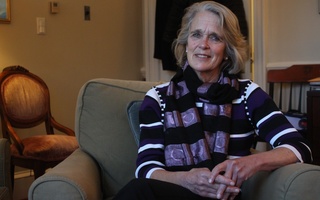{shortcode-0afe4d68c85a013525099832f466827686a9cc99}
After an unusually large freshmen class crowded into Harvard Yard this fall, Harvard College will accept fewer students into the Class of 2022 in hopes of admitting more students off the waitlist, Dean of Admissions and Financial Aid William R. Fitzsimmons ’67 said in an interview this week.
Due to the unusually large class size for the Class of 2021, twenty-eight freshmen are living in DeWolfe, overflow housing typically reserved for upperclassmen. Fitzsimmons said the Admissions Office is aiming to accept “40 to 50 to maybe 100 people” off the waitlist—last year, Harvard did not take anyone off the waitlist after a record number of admitted students matriculated. Fitzsimmons said the class was unusually large because fewer students deferred admission.
That change is one of several Fitzsimmons outlined for the upcoming admissions cycle in an interview with The Crimson on Tuesday. Because of a series of national disasters around the country and world, Fitzsimmons said his office will grant extensions for some early applications and take more time to deliberate on acceptances.
Though the Admissions Office plans to send admissions notifications via email to early applicants on Dec. 12 this year, Fitzsimmons said that it is possible that they will continue considering early admissions cases into early January for applicants from the affected areas.
“We could be in for a very different kind of calendar sitting in front of us this year, because we want to be fair to these students and give them the most complete hearing we can give them,” Fitzsimmons said.
The Admissions Office’s website currently indicates that extensions may be granted for the Nov. 1 early application deadline and to teachers and counselors who need to submit letters of recommendation, transcripts, and secondary school reports.
Additionally, the website reminds students that application fee waivers are available for cases of financial need and that November testing may be used for early applications. Despite the support, Fitzsimmons is uncertain how much of an impact the disruptions may have.
“There were testing sites that were shut. It’s hard to say what will happen,” Fitzsimmons said in an interview on Tuesday. “We’ll see how quickly schools get back together, but it can have a major effect.”
Fitzsimmons said that all students needed to do was reach out to the Admissions Office to receive an extension and that “the jury is still out” on how many students will request assistance. He credited the office’s immediacy in updating the website for the lack of phone calls from prospective students and families in the aftermath of the disasters.
Traditionally, Florida, the main state affected by Hurricane Irma, has sent the sixth most students to Harvard compared to other states, and Georgia, which was also affected by Irma, has been a “very big producer of students,” according to Fitzsimmons. Texas, which was hit by Hurricane Harvey, has become Harvard’s fourth most popular home state.
Though the Admissions Office hopes that the natural disasters won’t change high school students’ decision to apply to Harvard, Fitzsimmons acknowledged that it is expected for some affected students to prefer to choose a college closer to home.
“There’s no way to tell how this will work out,” Fitzsimmons said, “especially if they don’t have the kind of face time with their counselors that they normally would have had.”
—Staff writer William S. Flanagan can be reached at will.flanagan@thecrimson.com. Follow him on Twitter @willflan21.
—Staff writer Michael E. Xie can be reached at michael.xie@thecrimson.com. Follow him on Twitter @MichaelEXie1.
Read more in College News
Changes Mark Last Punch Process Before SanctionsRecommended Articles
-
Crimson Plays Olympics Tonight at Watson RinkHarvard's second-leading hockey scorer of all time, Gene Kinasewich '64, will be among the notable ex-collegians facing off against the
-
Yield Remains Steady at 81 Percent for Class of 2019About 81 percent of students admitted to the Class of 2019 plan to matriculate, which is about even with the rates of the past two years.
-
 College Financial Aid Director Announces Retirement
College Financial Aid Director Announces Retirement -
 Financial Aid Director Sally Donahue Leaves Legacy, Looks Ahead
Financial Aid Director Sally Donahue Leaves Legacy, Looks Ahead -
 Student Groups Call for Transparency in Legacy Admissions
Student Groups Call for Transparency in Legacy Admissions













